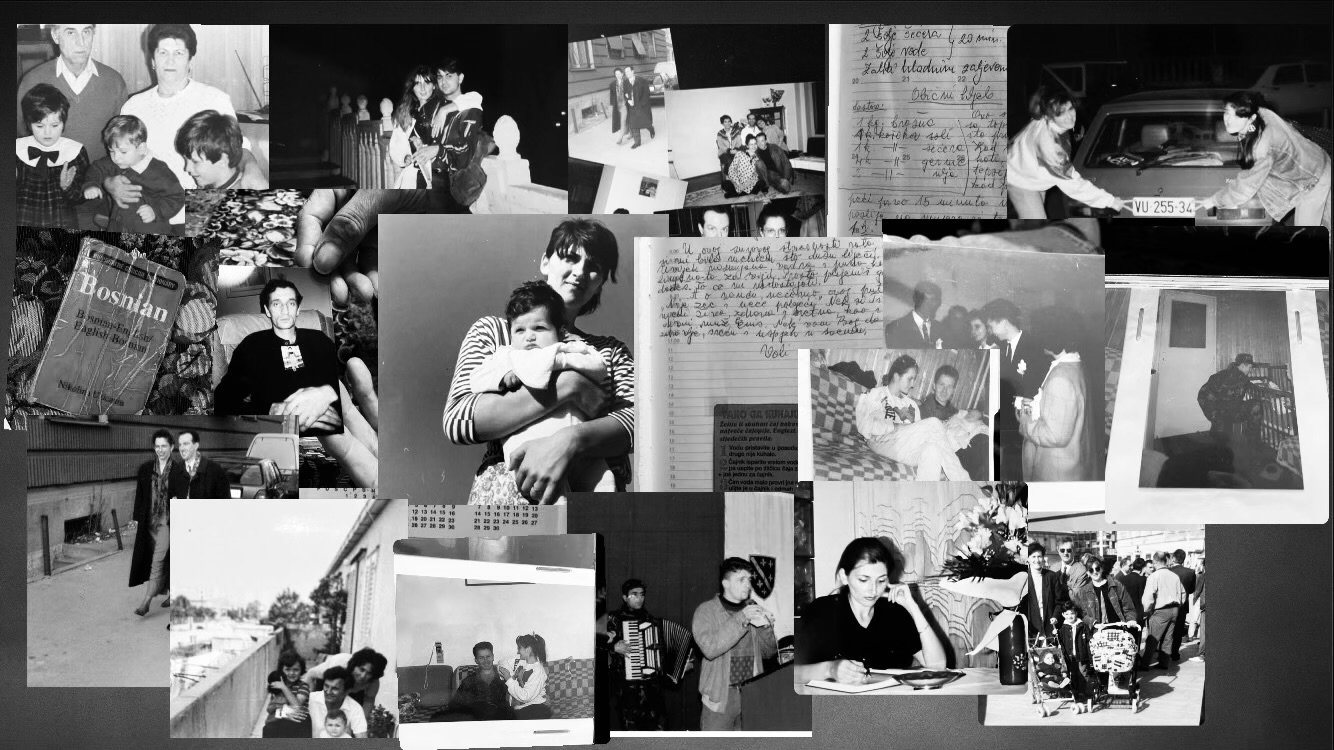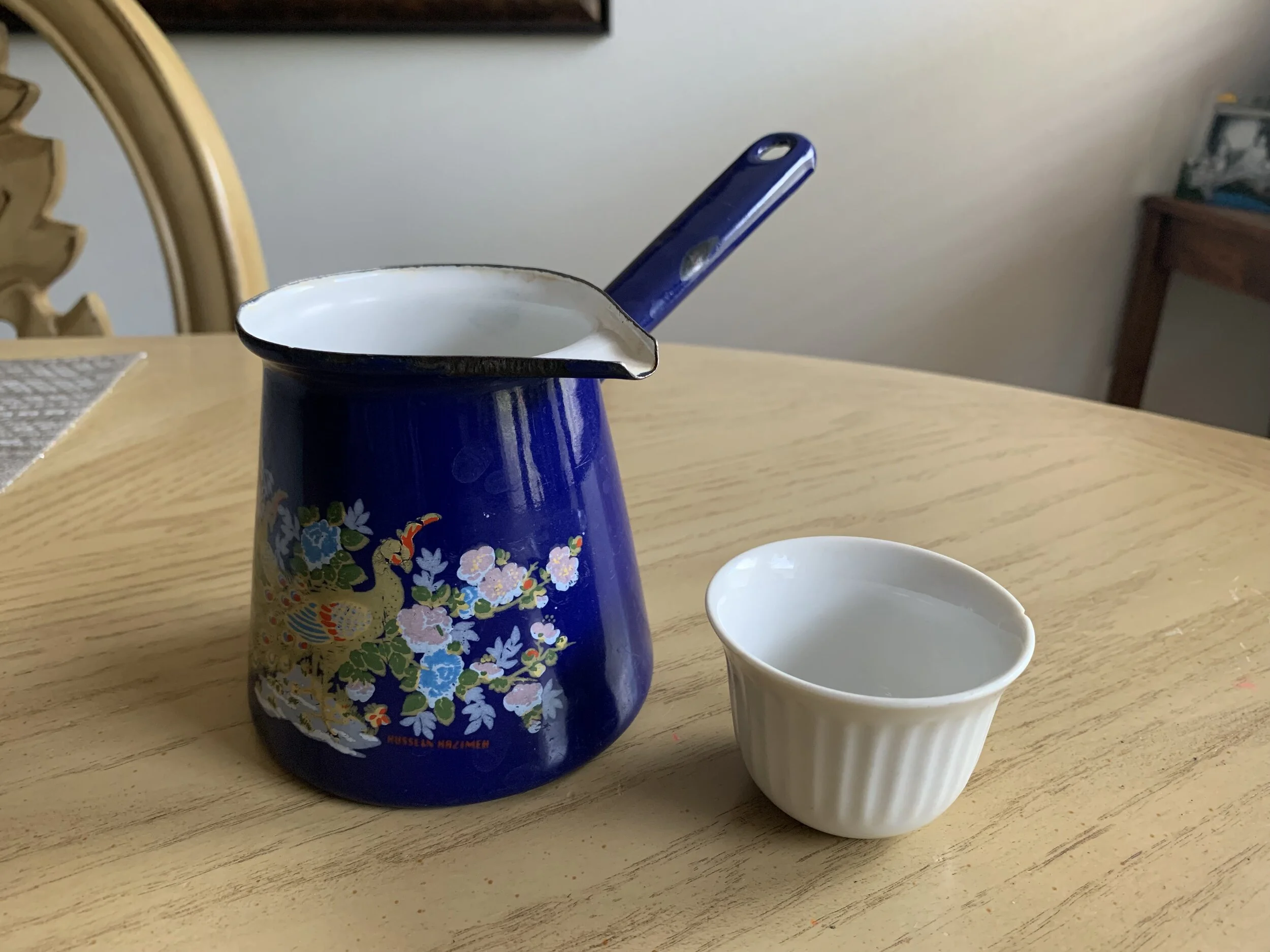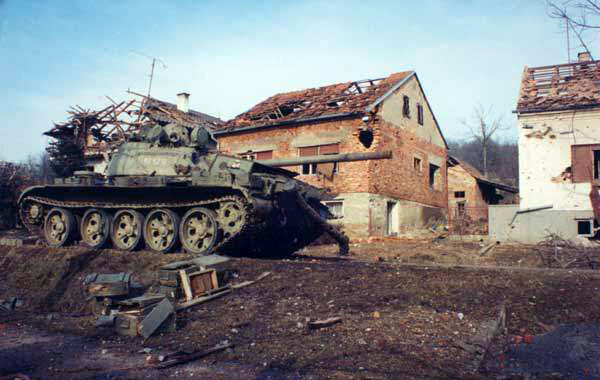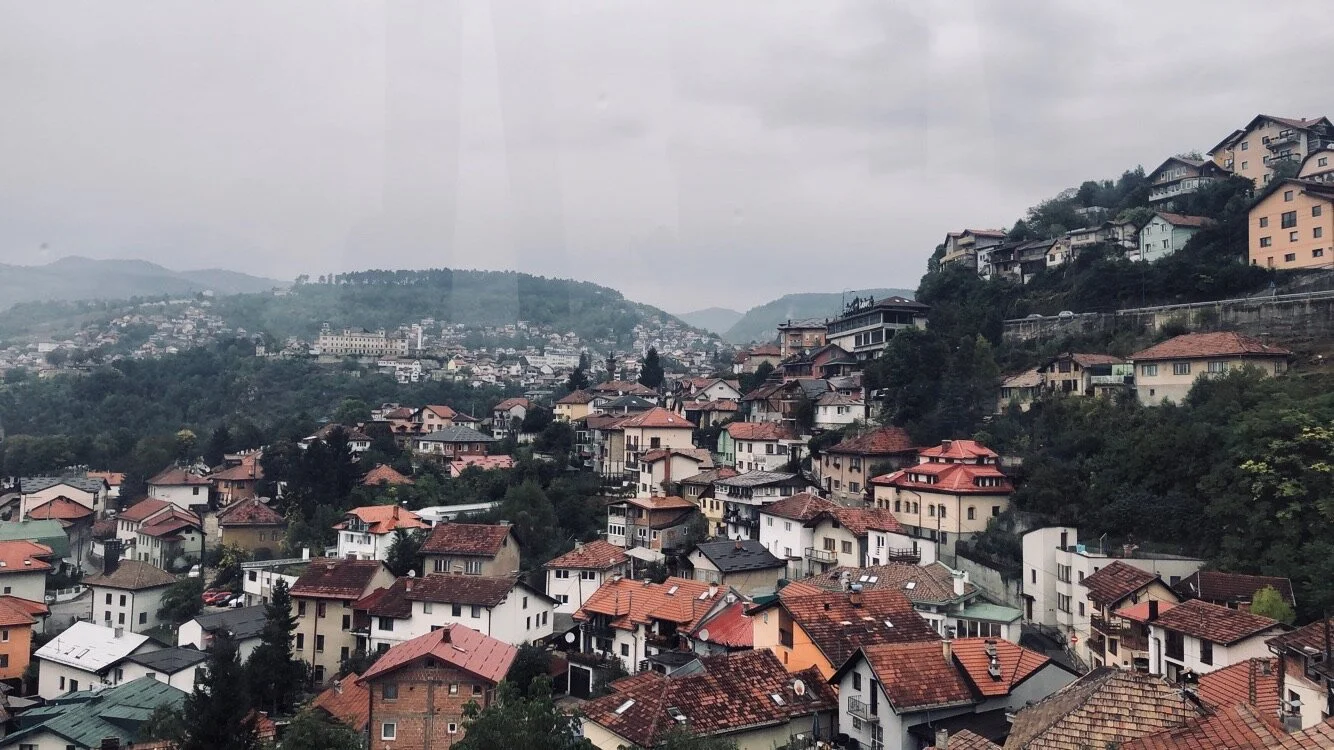
Interview Archive
Rusmir P., 48
“I want to say that in the beginning we were minors, but in the end, we ended up in-in-in shock, doing reconnaissance, sabotage, running assault units. Special units, whatever that means…The older ones knew what was happening and how it was all going together. What did we know? Nothing. We, the younger ones— I am speaking from the Association of Underage Fighters, when that war ended, it all simply dissolved and no one took care of us. There was no program of anything [pause] like these younger ones– let's employ them, lets them get an education, nothing. Absolutely nothing.”
Eldis S., 48
“I was a soldier in the the army. I was wounded once. Then, when the war finished in 1995, I was among the first to be demobilized because I didn’t want to wear that uniform anymore. I didn’t feel good about it, thinking about how I was imprisoned and I always had that sense of fear within myself, even as a soldier.”
Mirsad B., 41
“At that moment he slapped my face several times so I could give them information that I didn’t want to give. I pretended like I didn’t know anything. Although I slept in the woods among them, then, I thought it was… it was better that-that I was killed alone rather than my whole family. My family had six members, four children, and my parents. Aah… in that moment, he faced me to the ground and put a knife against my neck sa...saying: ‘’Tell me you Balija motherfucker, or I will slaughter you!”
Jakob F., 78
“For the children, we started Sunday School… In this Sunday School, we had around 20 children[…]. We were able to have generator to produce some electricity, to show them movies, documentaries, television, offer them some soft drink, and the cookies, so it was a wonderful place compared with the rest of the city which was under permanent attack. And a lot of them asked, “You know I have my best friend. We spent last three months in the shelter together. May I bring my best friend to this school?” Answer was naturally “Yes.” So we are running this Sunday School, Jewish Sunday School, with 20 Jews, and 30 best friends.”
Admir K., 47
“Without electricity. That’s always the first thing that comes to mind. I missed the electricity because I missed being able to study. You couldn’t study your best–I’m a night person, I study the best at night. And that was a problem for me. I finished my entire first year of university literally by candlelight. Before, we called it kandilo, I don’t know about now. But the majority by the candlelight. Which wasn’t good for your vision. A typical day was that I was always trying to read something, to learn something.”
Anonymous, 51
“We were laughing in their face. We say, “We’re not going to the basement for two or three grenades.” [Laughs]. You don’t go to the basement for two or three grenades. That’s when you would go to work. Everything would be functioning normally. We go to the basement when there are hundreds of grenades falling, because then you feel like, “Oh I could actually die,” and-and-a that decision to go to the basement is risky. And then that you could die.”
Mirsad Z., 51
“So we would change out shifts and exchange guns with each other, to ono… so like, I’d give someone else a gun while they were on their shift and then they’d give it back, and so that’s– that’s how a line was established on that, Mojmilo. Eto, so that’s that, Layla, this, that’s how I witnessed the war starting in Sarajevo.”
Raika A., 46
“At that point I was thinking, “I don't want to live like this.” I looked at other people around me, I looked at doctors - hungry. Engineers - hungry. A taxi driver had a PhD in Biology… I don't want this life. I do not want to live in such a society. And what I had... I was young, I had nothing to lose. No dogs, no machetes, no children, no husband, nothing. What do I have to lose? Just your life.”
Anonymous, 41
“Pa, that was, pa, you’re… you live in a house which is a kilometer from the front lines. What are you going to do at night? What are you going to do now? If you don’t know who is coming up to your door–you don’t answer. Normally you’d just shoot at whatever. It’d be a good day if that didn’t happen… I slept on the front lines. The front line was over there [gestures], 50 meters, and we kept an M-84 behind the bed, the most modern machine gun that existed, the best. That machine gun and one box with 50 hand grenades. That was under my bed.”
Anonymous, 43
“You know, I even like calling his name through my window because when I saw my dad and all other neighbors and all people, so many people, going to concentration camp, and they were making them sing songs, their songs, some borbanje pjesme [war songs], they were making them sing those songs. It [was] so hard, I’m looking at my dad, he’s singing those songs, like… it was very hard for me. And I was calling [to] him, he didn’t want to look at me, I was calling him, “Tata! Tata! Tata! Tata!”
Anonymous, 52
“He pushed my back with a rifle. I had one foot on the stairs. I told him, “You beat me for six months, you maybe broke my ribs, my jaw, my teeth, but you could not kill me. You son of a bitch.” (Deep breath). He cocked the rifle. I said, “Go ahead, do what you want.” I climbed up—once I got to the top of the stairs, I told him, “Zelena Beretka [Green Beret] survived. You couldn’t do anything to me.”
Anonymous, 46
“‘What am I gonna do with Edi?’ He was just burning in fever. He was sick. Edi’s father brought me a handful of aspirin, the-the pain relief pills, and he’s like, “I don’t know, just try to give him this at least to get his fever down.” You know, he is a baby, how you gonna give baby this? But you don’t know what to do. Uh… and I never gonna forget that-that day when my father left, he… He kiss us all, you know, he hug us. Uh… he kiss--I was holding my son, and he come and he kiss him. He was really happy, having a grandchild. And uh… He kiss me, and uh… He say, “Just protect your baby. Try to protect your baby.” And-and-and-and you know, he say bye to my mom and-and that was just… My father never came back.”
Anonymous, 57
And that is so eerie…. When you pass by a big village and [there isn’t] a soul. [No] civilians. [Maybe] a soldier here and there, wandering. Some cows, some animals, and an eerie feeling. It is such a strong feeling. A feeling of sadness, a feeling of depression, like it’s the end of the world.
Adil B., 59
“And it was one room, one space, with 34 men, at the same time, their heads over here and their feet over here, and here were their heads and there were their feet, and their feet are like here, there, mixed up. We can’t turn around or tip over. Did they chase us around to work? No they didn’t. We just needed to lay there, we weren’t allowed to stand on our feet. We just laid there. And that was the camp.”
Anonymous, 53
“And I’m musician. So this Serbian singer comes up to me and he’s like “hey man,” I says “what’s up.” he says, “we are gonna go in one of the hills”--which becomes the concentration camp in 1992--he says “We’re gonna go and shoot a video” and I said “nice, that’s gonna be awesome.” And I didn’t even know what the video is for, I was gonna be their drummer. And, um, so I got the printed lyrics about “We are the Serbia” and we gonna be on a tank with the Serbia new flags (which then I never even see it). So then my father shows up at home and I told him like “Oh I’m gonna do that,” and he found that um lyrics about the thing. And I got slapped first time, like BOOM! He says like ‘You go into your room and if I see you in that video you get out of this house.’”
Anonymous
“Everything. Everything that happened, it’s best to know everything, sine, from A to Z. Just to learn literally about what happened, history. Better to write down everything. There was a lot of injustice. No one can forbid you to write, write everything. What happened, sine ... it’s better for everyone to know. Because they do not know, they may live in some delusion if they do not know the truth. But I think that today or tomorrow, the truth will come out. Justice will always come out.”
Admira M., 34
“And you’re seeing people wounded, you’re seeing people get shot, or you’re seeing things that bring it home for you. So even if you don’t understand the larger picture of why things are happening, you understand your day is dangerous.”
Anonymous, 39
“I remember that we were beside the sea and it was a really beautiful day and I remember that—how everything somehow reflects— and I won’t forget the sea, and I wondered how it could be such a beautiful day but also so bad of a situation.”
Enis K., 58
“It was like coming to different world when we went to my aunt. It was like molasses-- no shooting, nothing. We would go out and sit on a bench in her yard in her house and watch my part of town being bombed and shelled...just smoke everywhere. And we were just having coffee, having a cigarette, in complete calm, five miles away.”
Anonymous., 50
“When we feel frustration from Americans or from different nations here towards the refugees, I think that everybody needs to know that we, as refugees, wouldn’t be here if the war wouldn’t happen in our country. We would all enjoy actually staying and living in our country and and and being a part of what was familiar to us, where we grew up, where our parents live, where our families live instead of trying to flee the country, leave it, legally, not legally, doesn’t matter which way, in order to make a living.”



















